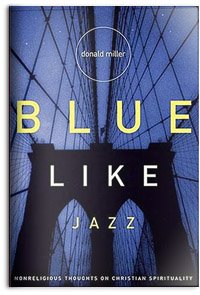What’s Your Worldview?
In Nancy Pearcey’s book Total Truth she talks about a book titled Conversations with God for Teens by Neale Donald Walsch. This book of conversations contains questions teens ask questions about life and God. The author answers as if he were God. Consider the following example from a girl of 13:
Question: “But how can I ever erase the bad things I’ve done from your judgment book?”
Answer: “There is no “judgment book.”…It may be a surprise for most humans to learn that there is no such thing as right and wrong. There is only what works and what doesn’t work…absolute right and absolute wrong do not exist.
Question: So right and wrong are a changing thing?
Answer: Yes, changing and shifting from time to time and place to place.
Now regardless of whether you agree with “God” here, the statement should be evaluated, shouldn’t it? At the least, “God” (the author) should be asked by the reader, “Are you absolutely sure there is no absolute right and wrong.”
You see, everyone has a way of looking at the world. Everyone has a “worldview.” Everyone has a perspective on reality. And this perspective on reality affects the way we look at everything. Everything. Mr. Walsch, the author of Conversations with God for Teens has a Worldview he is teaching (preaching!) to teenagers. The question is, “how do we evaluate such worldviews?” Mrs. Pearcey, the author of Total Truth helps us here.
She suggests to the reader that every Worldview must be evaluated through a fairly simple grid. This grid consists of the following three points:
Creation – “Where do we come from?” “Why are we here?”
Fall – “What went wrong?” “What is evil and suffering?”
Redemption – “How can things be made right?” “Is there any reason for hope?”
According to Mrs. Pearcey, every Worldview must be able to answer these questions. If it cannot answer these questions in a sensible way then it must be discarded. It follows then that this grid can be used to evaluate the Worldviews that are beamed into our homes and sit on our bookshelves and bounce around in your child’s backpack.
In the South, most people probably do not need to be convinced that the most logical and intellectually satisfying is the Biblical Worldview. A Biblical Worldview answers the question in our three-point grid by looking into the Bible. In other words those who have a Biblical Worldview see the world through the “lens” of the Bible. Their perspective on reality is determined by the way the Bible views reality. Again, most people in the South, specifically in Mississippi, do not need to be convinced that a Biblical Worldview makes sense, indeed the only worldview that makes sense. The problem is that most are not equipped with the tools needed to respond to various issues in their life with a Biblical Worldview. Most Bible-believing Christians have trouble living their life in a way that is consistent with a Biblical Worldview. Let’s see if Pearcey’s grid is a helpful tool.
Take Sports for example. What would participation in athletic contests look like for people who live out their Biblical Worldview and for those who reject a Biblical Worldview?
Let’s look at the one who rejects the Biblical Worldview first. The goal is only to win and whatever it takes to win must be done (Creation). After all there is no objective standard by which to measure what ought to be done, only what can be done to win. That includes inflicting injury, trying to get away with breaking the rules of the game and trash-talking. If the athlete gets elbowed under the goal, how do they respond? They elbow back! What if one player gets taken out of the game by injury (Fall)? Retaliate! The only hope is to win and that alone (Redemption). And what if you lose? Complain about the officiating, reluctantly congratulate the other team, who probably cheated and whine intolerably. There is no reason for the athlete or spectator to act any different.
So what about the athlete who lives out the Biblical Worldview? According to the Bible, we exist to glorify the God who created us and everything else (Creation – Romans 11:36; Isaiah 43:7). If that is the purpose in life it ought to be our purpose in all parts of life…even sports. And we can say “ought” because there is a Standard by which we measure our lives, God himself. How do we then treat the other players (Fall – Romans 3:10)? As those who have been created in God’s image and therefore as we would want to be treated (Matt. 7:12). But what if a player on an opposing team gives us an elbow in the stomach? We respond in kindness instead of in kind. We remember that while we were once enemies Christ died for us (Romans 5:10). We forgive because we have been forgiven. We extend mercy because we have received mercy. And in winning and losing we enjoy the game as a gift (Philippians 4:1). Winning is not the best news we could get and losing is never our worst problem. This is not to say we should not strive to win, winning simply cannot be the ultimate goal in a Biblical Worldview. Our biggest problem was dealt with on the cross (Redemption – Romans 3:21ff). Our hope is not the glory of winning; our hope is the glory of God (Romans 5:2; 2 Cor. 4:6).
I encourage you to test (Romans 12:2) the Biblical Worldview and all other worldviews using the above grid of Creation, Fall and Redemption. Everyone has a Worldview. What’s yours?
Matt Redmond
Pastor of Student Discipleship
Westminster Presbyterian Church






